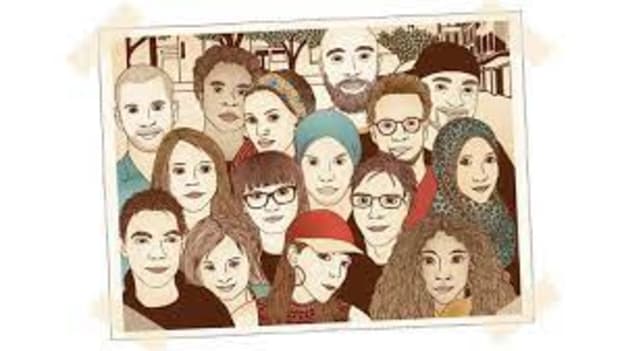The importance of upskilling Gen Z at the workplace

A recent World Economic Forum report found that more than 42 % of all jobs will significantly change by 2022 as the future of workspaces is rapidly evolving. The change in skill requirements and job roles have become increasingly dependent on technology across sectors, resulting in companies emphasising on skills rather than educational qualifications while hiring.
According to research studies, Generation Z is predicted to be the second largest cohort of the workforce by 2030 constituting around 22% of the global workforce. They were born in a time where connected technologies became the norm and hence, are more proficient in technology and able to flourish in collaborative environments. With most of them preferring a dynamic and fast paced work environment, the industry leaders are figuring out how to address the skill gaps by adapting learning and development for this new generation.
An insight into their backgrounds will help us understand them better. They grew up in the world of the internet where information was readily available and are not hesitant to pick it up from any platforms available. However, the flip side of it is that their attention span for learning has come down drastically as they flit from portal to portal looking for instant gratification and focus more on speed than on accuracy.
Here are some of the methods which may help in training/upskilling them in an effective manner:
Anytime learning and hyper-personalization is the key
Traditionally, training used to be something that resides in the Learning Management System, while today it is available on the internet in different platforms. Enabling the learners to find the right content when they need to (anytime learning), preferably in small nuggets/modules which are easily accessible to them. Using AI to hyper-personalize learning across platforms based on their professional/personal needs like targeted shopping.
Immersive learning experiences
In a 2016 study among middle and high school students by Barnes & Noble, it was seen that 51% of the participants preferred learning by doing (working through examples/problems etc.) or in other words, a fully immersive learning experience. It is not surprising that they expected a larger mix of study materials like online videos, digital textbooks, game-based learning, smart boards, do it yourself learning etc. and rated their usefulness quotient at approximately 80%
Making informal social learning a part of the learning model
Seeking and sharing knowledge are inherent human traits that have existed from time immemorial and continue with this generation too. The evolution that has happened over this period is the methodology in which knowledge is disseminated. Most of the organizations use multiple communication tools for employees to interact informally among themselves and are used quite effectively too. These platforms with slight changes in security controls can be enabled for social learning across companies to promote
informal learning where people can create chat forums to discuss different topics, crowd learning, finding solutions to problems in their respective areas, create and post videos and podcasts on various topics.
Cross training & skilling for career progress
The general misconception about Gen Z is that they are only looking out for fulfilling their short-term goals and that any learning that they would engage in are ones that would give them an edge in their current jobs. However, this is not true as they want to not just excel in their profession but also experience different functions/departments which would help them understand their own functional areas better. Cross training, job rotations, Internal Job Postings (IJP’s) and mentorships are all methods that can help them satiate their desire to explore and at the same time help them grow within the organization. Learning can be an effective engagement tool for them if their learning journey is aligned to their career progress
Re-defining the performance management philosophy
Mercer’s Global Performance Management studies from 2019 showed that only 2% of companies believe that their performance management approach delivers exceptional value. The traditional metrics, which weren’t working in the past, have now become even more redundant with a mix of the Gen Z in the workforce. The need of the hour is to have the managers co-create agile goals along with the individual employees, focusing on matrices that produce results that impact business.
The famous quote by Benjamin Franklin aptly sums up the issue, “Tell me and I forget, teach me and I may remember, involve me and I learn”. The global pandemic has made training and upskilling of the Gen Z workforce much more challenging. However, it is worth the investment in providing the necessary time and resources required to train and upskill them, as it would not only keep them motivated and engaged
in the present , but also lay the appropriate foundation for preparing the workforce of the future.
















